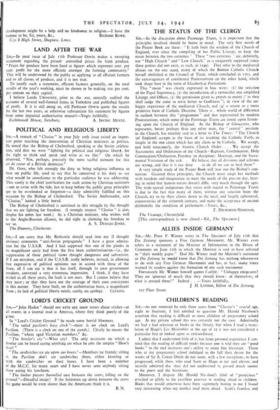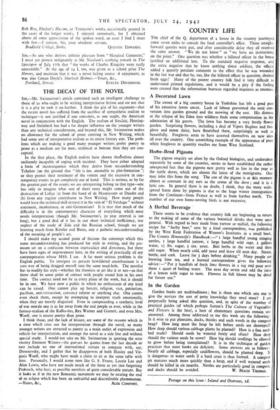CHILDREN'S READING
SIR,—As one removed by only three years from "Clusius's" crucial age, eight to fourteen, I feel entitled to question Mr. Harold Nicolson's assertion that reading is difficult to most children of preparatory school age. At my private school this was certainly not the case. Admittedly we had a bad selection of books in the library, but when I read a trans- lation of Hugo's Les Miserables at the age of 12 it was not considered a particular feat or looked upon as extraordinary.
I admit that I understood little of it, but from personal experience I con- tend that the reading of difficult books because one is told they are " good books " in the end increases one's ability to enjoy fine literature. Those who at my preparatory school indulged to the full their desire for the works of Sir A. Conan Doyle do not seem, with a few exceptions, to have progressed, while those who read Scott or Hugo at ter and eleven, and secretly admitted tha, they did not understand it, passed much sooner to the poets and the historians.
Moreover, I dispute Mr. Harold Nicolson's label of " pernicious " attached so glibly to the excellent practice 01 reading aloud to children. Books that would otherwise have been supremely boring to me I found very interesting when my mother read them aloud. Scott's Ivanhoe and Rob Roy, Flecker's Hassan, or Tennyson's works, occasionally pruned in the cases of the longer works, I enjoyed immensely, for I obtained above all some appreciation of the spoken word, an asset I find I share with few.—I remain, Sir, your obedient servant,



























 Previous page
Previous page